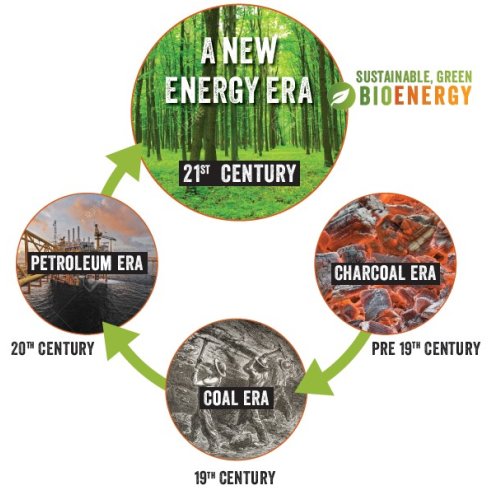Bioenergy – the renewable fuel
Bioenergy – the most flexible and extensive renewable energy source
Bioenergy is the future. As the most widely used form of renewable energy worldwide - outpacing hydro and wind - it provides heat, electricity, and transport fuel while offering a significant opportunity for industry growth in New Zealand.
Expanding bioenergy and biofuels will drive economic growth, particularly in rural areas, by improving land use, fostering new businesses, and creating jobs that strengthen local communities.
The Bioenergy Association actively promotes and supports the growth of New Zealand’s bioenergy and biofuels sector, helping businesses thrive in this rapidly evolving industry.

A Vision for the Future
More than 9% of New Zealand’s energy already comes from bioenergy. By 2050, this could more than triple to 27% of the country’s energy needs, reducing greenhouse gas emissions by 15% (compared to 2017).
Harnessing New Zealand’s expertise in agriculture, forestry, wood processing, and bioenergy from waste will create new business opportunities, potentially adding $6 billion per year to the economy. (Sourcing biomass to meet projected demand)
Sustainable Growth through Innovation
Bioenergy leverages residues and co-products from existing industries, transforming organic waste into valuable energy instead of letting it go to waste.
By increasing our use of bioenergy and biofuels, we can build a cleaner environment, a stronger economy, and a more sustainable future.
Our reliance on fossil fuels is unsustainable - investing in bioenergy is an investment in New Zealand’s future.
Why Bioenergy is the Answer - and Why we Must Act Now
Watch this short video to see how bioenergy can help solve our fossil fuel crisis, reduce environmental damage, and why urgent action is needed.
Adding Value to your Business and our Communities
As communities explore opportunities for job creation and the development of locally produced products, extracting greater value from wood and waste presents a rapidly scalable opportunity. New Zealand’s existing bioenergy and biofuels production provides a strong foundation for expanding into new bioproduct ventures.
The bioenergy and biofuels sector demonstrates the economic potential of utilising residues from primary production, such as log exports and timber manufacturing. Alongside engineered wood products, bioenergy and biofuels are already contributing significantly to value-added industries.
A Strategic Approach to Growth
We have a unique opportunity to build an added-value strategy centered on the increased use of wood and organic waste by:
- Prioritising wood in construction – Encouraging businesses, government, and communities to adopt a ‘wood-first’ policy for building and infrastructure.
- Driving product innovation – Supporting the development of new wood-based and waste-derived products, aligning with the bioeconomy vision and leveraging science and government partnerships.
- Eliminating organic waste to landfill by 2035 – Encouraging innovative alternatives for organic waste utilisation.
- Establishing a bio-based primary industry – Promoting international trade opportunities in bio-based products, building on the strong foundation of existing wood exports.
- Developing regional bio-processing hubs – Supporting local and regional processing of wood residues and municipal waste streams to establish viable circular economies.
Achieving National Goals
Adopting these policies would directly support government objectives, including:
- Expanding domestic wood processing
- Addressing waste management challenges
- Providing feedstocks for bioenergy, biofuels and bio-products expansion
Investing in bioenergy is not just about sustainability - it’s about creating a stronger economy, generating jobs and positioning New Zealand as a leader in the global bioeconomy.

